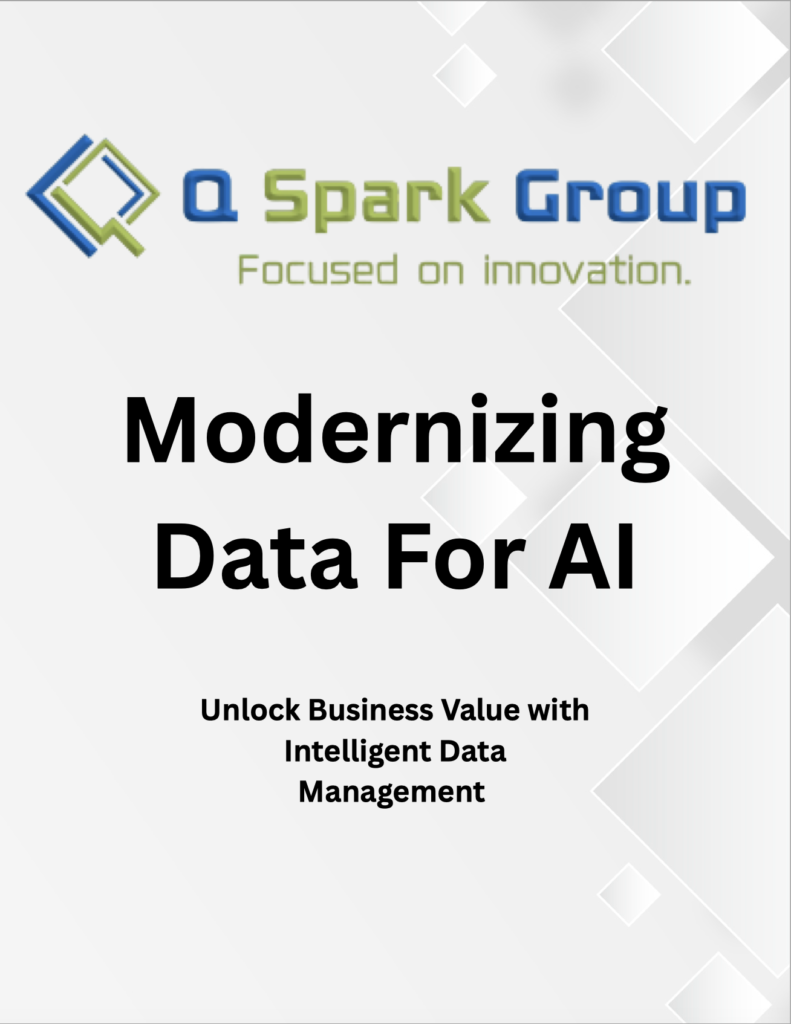Modernizing Data Management: The Foundation for AI Success

by Sachin Wadhwa, CEO and Founder
View Other Blogs by Category
Artificial intelligence is no longer just a competitive advantage — it’s becoming a necessity for enterprises that want to innovate and grow. From intelligent automation to customer personalization, AI is reshaping industries at a rapid pace. Yet many organizations discover the same hard truth: AI initiatives succeed or fail based on the quality and accessibility of data.
Legacy data systems, built for reporting rather than real-time intelligence, can’t keep up with the demands of AI. Data trapped in silos, batch processing delays, and manual governance processes create friction that slows down innovation. Instead of accelerating transformation, these systems hold organizations back.
This is why modernizing data management has become the foundation for AI success.
What Does Data Modernization Really Mean?
At its core, data modernization is about rethinking how organizations collect, organize, govern, and deliver data so that it can support advanced analytics and machine learning. It’s not just about migrating to the cloud or upgrading infrastructure — it’s about enabling trusted, timely, and reusable data for AI-driven decision-making.
Modern data practices focus on:
- Unified access to break down silos across departments
- Real-time pipelines that ensure fresh, relevant information for AI models
- Automation and observability to maintain data quality at scale
- Metadata and lineage tracking to provide transparency and trust in AI outcomes
- Integration with MLOps and AI workflows to move models seamlessly from development into production
The result is a data ecosystem that empowers teams to build and deploy AI quickly, responsibly, and at scale.
Feature Stores: Bridging Data and AI
One of the most impactful innovations in this space is the feature store. A feature store is a centralized platform that manages the data points (features) machine learning models use. By ensuring consistency between training and production, reusing features across projects, and monitoring their quality, feature stores remove one of the biggest barriers to AI adoption: operationalizing data for machine learning.
For enterprises, this means faster model deployment, reduced duplication of effort, and greater trust in AI outcomes. Simply put, feature stores transform data from a bottleneck into a strategic enabler.
Why It Matters Now
As organizations expand their AI ambitions — from single use cases to enterprise-scale AI agents — the pressure on data infrastructure will only increase. Companies that invest in modernization now will be positioned to move faster, innovate more confidently, and capture greater business value. Those that delay risk falling behind as competitors scale their AI capabilities.
The Bottom Line
AI cannot thrive on outdated systems. Modernizing data is the prerequisite to unlocking its full potential. With the right strategy, tools, and governance, organizations can create a data foundation that not only supports today’s AI projects but also scales for tomorrow’s opportunities.
eBook: Modernizing Data for AI











